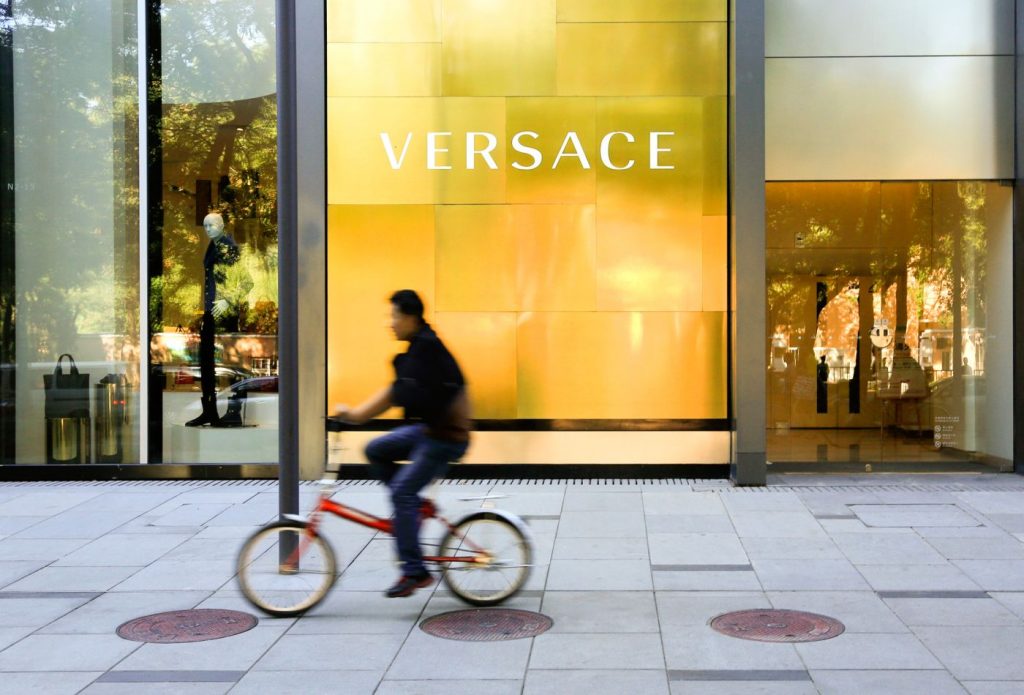The luxury brands are the latest businesses to come under pressure from Chinese internet users for appearing to flout Beijing’s territorial claims.

The luxury brands Coach and Givenchy joined Versace on Monday in apologizing to China for producing T-shirts that were regarded to have undermined the country’s sovereignty.
The apparel, which identified the semi-autonomous regions of Hong Kong and Macau as countries, set off an angry online backlash from Chinese consumers who perceived the designs as violations of the “One China” policy.
Millions of social media users across China called for boycotts of the Western luxury companies’ products on Monday, after images of the three garments, which are no longer for sale, circulated over the weekend by users on social media platforms such as Sina Weibo, China’s Twitter-like microblogging site.
The furor comes as pro-democracy demonstrations continued to grip Hong Kong. The protests have heightened political sensitivities, particularly around China’s territorial claims and Hong Kong’s status.
A look from across the New York Times at the forces that shape the dress codes we share, with Vanessa Friedman as your personal shopper.
The outcry over the luxury apparel also underscores the growing pressures faced by foreign companies that seek to do business in China.
In recent months, Beijing appears to have increased its policing of how overseas companies refer to semiautonomous Chinese territories such as Hong Kong and Macau.
Versace, Givenchy and Coach are the latest foreign companies to draw fierce criticism from consumers in mainland China over sovereignty sensitivities, and boycott calls and online backlashes have been on the rise in recent months.
Chinese shoppers are a top consumer group of luxury goods, accounting for at least a third of luxury sales worldwide and two-thirds of the luxury industry’s growth, according to figures from Bain & Company, a management consulting company.
The latest fallout began Sunday when images surfaced on Weibo of a black Versace T-shirt that paired cities next to apparently corresponding countries. “Macau, Macau” and “Hong Kong, Hong Kong” sat beside pairings such as “Beijing, China” and “Rome, Italy” on the back of the garment.
Hong Kong is a semi-autonomous territory under Chinese sovereignty, meant to maintain a range of freedoms; the gambling enclave of Macau is another special administrative region.

In a post published on its Instagram and Weibo accounts, the Italian luxury house said that it had made a mistake, stopped selling the product and destroyed the remaining T-shirts on July 24.
“Versace reiterates that we love China deeply, and resolutely respect China’s territory and national sovereignty,” the company said in the statement, subsequently echoed by the designer Donatella Versace.
The Chinese actress Yang Mi, who was a spokeswoman for Versace, later said she had terminated her contract with the company. “The motherland’s territorial integrity and sovereignty are sacred,” she said in a Weibo post.
Then, a T-shirt by the American fashion house Coach emerged onWeibo that also did not identify Hong Kong as part of China.
The designs, which were removed from sale in May 2018, also appeared to imply that Taiwan — a self-ruled democratic island considered a breakaway province by Beijing — was an independent country. The company posted a public apology.
“We are fully aware of the severity of this error and deeply regret it,” said the message, which was posted on Coach’s official Twitter and Instagram channels. “Coach is dedicated to long-term development in China, and we respect the feelings of the Chinese people.”
Coach, which is owned by Tapestry, a luxury fashion holding company based in New York, also lost a prominent China spokeswoman thanks to the gaffe.
“I apologize to everyone for the damage that I have caused as a result of my less-careful choice of brand!” the model and actress Liu Wen wrote on Weibo on Monday, as she confirmed that she planned to end her contract with the company. “Coach” was one of the most popular terms on Weibo early Monday morning, receiving 1.2 billion views.
Also on Monday, the French fashion house Givenchy issued an apology on Instagram for a T-shirt design that appeared to characterize Hong Kong and Taiwan as autonomous countries.
It was being sold for 3,990 renminbi ($565) on the Chinese website of the luxury e-commerce platform FarFetch until the page was taken down Monday.
The brand, owned by the luxury goods conglomerate Louis Vuitton Moet Hennessy, also apologized in a Weibo statement, saying it “always respects Chinese sovereignty.”
The backlash comes less than a year after a Dolce & Gabbana advertisement showing a Chinese model struggling to eat spaghetti and pizza with chopsticks prompted outrage and a boycott of D&G goods.
Airlines, carmakers, hotel operators and other consumer brands have all come under fire for appearing to flout Beijing’s territorial claims on their websites or product labels.
In July last year, American Airlines, Delta Air Lines and United Airlines began to list only Taipei’s airport code and city on their websites, but not the name Taiwan, conceding to months of Chinese pressure.
In January 2018, J.W. Marriott also publicly apologized when the wording of a customer survey prompted questions over its support of separatist movements. And last year, the American retailer Gap apologized for selling T-shirts that it said showed an “incorrect map” of China.
source: /www.nytimes.com
MARKETING Magazine is not responsible for the content of external sites.










